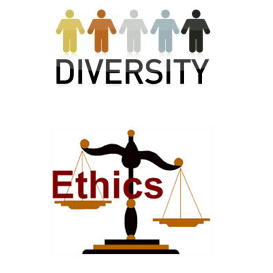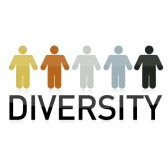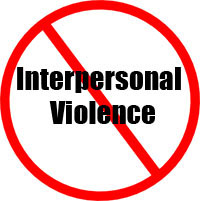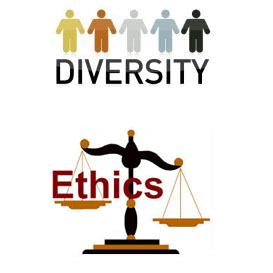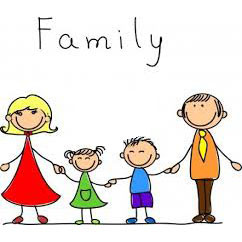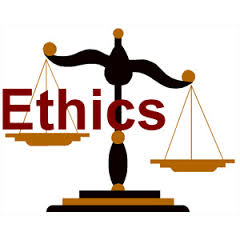Menu
Array
- 2023, August 4, DRC, Dispute Resolution Center Conference, Video Download Only
- 2022, August 11-13, DRC, Dispute Resolution Center Conference Recordings
- 2021, August 11-13, DRC, Dispute Resolution Center Conference - Video Download Only
- 2020, August 13-15, DRC, Dispute Resolution Center Conference Recordings - Video Download Only
- 2019, August 15-17, DRC, Dispute Resolution Center Conference Recordings
- 2018, August 9-11, DRC, Dispute Resolution Center Conference Recordings
- 2017, August 10-12, DRC, Dispute Resolution Center Conference Recordings
- 2016, August 11-13, DRC Dispute Resolution Center Conference Recordings
- 2015, July 30-August 1, DRC, Dispute Resolution Center Conference Recordings
- 2014, August 14-16, DRC, Dispute Resolution Center Conference Recordings
- 2013, August 9-10, DRC, Dispute Resolution Center Conference Recordings
- 2012, August 23-25, DRC, Dispute Resolution Center Conference Recordings
- 2011, August 25-27, DRC, Dispute Resolution Center Conference Recordings
- Catch All Category
Product Categories
Filter by price
A1: Creating Safer Communities: Understanding Family Violence and the Effects on Communities and Organizations – Judith McKay (1.2 CME Credits Interpersonal Violence)
$5.00
Video recording: The need to create safer communities has never been more urgent than in our present day. Communities are struggling with violence, social injustice, and racism. This workshop will explore the relationship between violence in the home, and violence in neighborhoods and organizations. This impact includes the transgenerational transmission of trauma and extends far beyond family cases. It includes recent research related to Covid-19, the increase in family violence, the effects on underserved communities, and the effects on parties and clients.
A2: Voices of the Vulnerable in Mediation: Ethics and Practice – Linda Fieldstone and Fran Tetunic (1.2 CME Credits Ethics and Cultural Diversity)
$5.00
Video recording: Dispute Resolution practitioners have the obligation to have all voices in the process be meaningfully heard, which may be challenging when working with some of the most vulnerable among us: children, elders, and individuals with disabilities. How do we keep the voices of the vulnerable prominent while respecting all at the table? This workshop will help family and elder mediators, as well as parenting and eldercaring coordinators, consider ethical obligations and practical techniques that guide us in strengthening the voices of those who might otherwise be silenced or disregarded.
A3: Multilingual Mediation: Scenarios and Solutions – Ana Cristina Maldonado (1.2 CME Credits Ethics and Cultural Diversity)
$5.00
Video recording: English is the language of our court system, but this is Florida, and many people in our state speak another language and no English, prefer another language to English, or are multilingual. This workshop reviews the various the scenarios where multiple languages come into play during mediation. How can a mediator - either monolingual or multilingual - approach them and not run afoul of ethical rules and opinions or court rules?
This session will be repeated during Workshop Series B.
A4: Is Your Agreement to Mediate up to the Zoom Challenge – Robin Caral Shaw (1.2 CME General)
$5.00
Video recording: Our agreements to mediate have not been updated much over the last 20 years or so. Now, with Zoom mediations, every mediator should take a good look at his or her agreement to make sure it incorporates the current realities of online mediation. There is a second issue that has received a spotlight lately as well: The challenge of more mediation participants -- including mediators -- bringing weapons into mediation. Have people been modifying their Agreements to Mediate to address safety concerns?
A5: Using Questioning Techniques to Move Mediation Forward – Mary Bruck (1.2 CME General)
$5.00
Video recording: This workshop focuses on "Creative and Critical Thinking Approaches to Questioning" in mediation. Asking the questions in a way to open and continue the dialogue during mediation can help reach an agreement. Types of questions, probing questions, and questions to get to the interest of the parties are discussed. Creating a positive environment through questioning is also practiced.
A6: Cultural Diversity and Gestures in Mediation – Sonya Nasser and Peter Spanos (1.2 CME Cultural Diversity)
$5.00
Video recording: This presentation will discuss how to handle mediating with people who are from various cultural backgrounds. Various Cultures have different approaches as to how they handle conflict. Communication styles vary and awareness of the styles makes for an easier flow of the mediation process. Knowing the gestures and communication styles amongst various cultures makes it easier for a mediator to be able to facilitate the discussion necessary for the parties to come up with a settlement agreement.
A7: ADR for Cryptocurrencies – Alberto Saravia (1.2 CME General)
$5.00
Video recording: Cryptocurrencies are going mainstream and future disputes will most surely arise and encompass many issues affecting and shaping commercial relationships between multiple counterparts, a clear trend that will require highly specialized mediation that will have to be conducted and resolved with consumer protection and business compliance parameters in mind. There will be a need to solve multiple operational and transactional issues and problems, as well as potential valuation discrepancies between the contracting parties as all these quasi monies are in their infant stage of general acceptance.
B1: Abuse, Neglect and Exploitation of a Vulnerable Adult – Twyla Sketchley (1.2 CME Interpersonal Violence)
$5.00
Video recording: By 2030, 1/3 of Florida's population will be over 60 years of age. Individuals over age 60 are targets for abuse and exploitation. Exploitation causes approximately $20 billion in damages each year and often is accompanied by physical abuse or neglect. This presentation will provide mediators with information for identifying vulnerable adults in mediation; the signs of abuse, neglect, & exploitation; and the obligations of a mediator and other parties with regard to vulnerable adults in Florida.
B2: Hey, I Know You – Chester Wilson (1.2 CME Ethics)
$5.00
Video recording: This workshop will focus on mediating parties known to the mediator. It will highlight disclosing to party's relationship history and the ability to remain neutral. Mediators will learn how to assess themselves for appropriateness and examine their ability to remain neutral or recuse themselves.
This session will be repeated during Workshop Series C.
B3: Multilingual Mediation: Scenarios and Solutions – Ana Cristina Maldonado (1.2 CME Ethics and Cultural Diversity)
$5.00
Video recording: English is the language of our court system, but this is Florida, and many people in our state speak another language and no English, prefer another language to English, or are bi-lingual or multilingual. This workshop reviews the various the scenarios where multiple languages come into play during mediation. How can a mediator - either monolingual or multilingual - approach them and not run afoul of ethical rules and opinions or court rules?
This session is a repeat from Session A3.
B4: Understanding ESI, E-Discovery & Other Technology Issues Which Litigators Are Fighting Over in Your Mediation – Christopher Hopkins (1.2 CME General)
$5.00
Video recording: Disputes between parties -- and even discovery disputes between lawyers -- have become increasingly more technologically complicated. These issues can arise in even non-tech related cases (e.g., phone and social media records sought in accident cases; metadata sought in commercial cases; social media info sought in family cases). Make sure you understand the basic concepts of e-discovery, ESI, production of emails vs. PDFs, preservation requirements, social media discovery, subpoenas to internet providers, etc. before you mediate your next case.
B5: Mindfulness Mediation Techniques – Patrick Russell and Jeanne Potthoff (1.2 CME General)
$5.00
Video recording: Introduction to mindfulness and how it can impact mediation and lead to more positive and ethical outcomes. This is not your typical interest-based negotiation technique or how to identify and utilize leverage. Rather, this is about adjusting and fine-tuning your own perspective as a mediator and the perspective of those around you during mediation to facilitate better outcomes.
B6: Probability for Mediators – Judith Starr (1.2 CME General)
$5.00
Video recording: The accurate estimation of alternative outcomes by the parties is an important driver of a successful mediation. When parties make unrealistic predictions using flawed analytical methods, they can get stuck in impasse or reach suboptimal agreements out of sheer exhaustion. Mediators need analytical tools that help them identify flawed analyses and engage with parties in objectively assessing potential outcomes of their dispute. The goal of this workshop is to provide such tools by fostering an understanding of basic probability principles and their application to the mediation process.
B7: The Craft of Mediation: Effective Strategies That Also Support Diversity and Inclusion – Rebecca Storrow, Harold Coleman and Alexis Georgakopoulos (1.2 CME Cultural Diversity)
$5.00
Video recording: It is important for experienced, practicing mediators to expand their toolboxes of techniques. Developing core skill sets, questioning entrenched systems, and appreciating the complex nature of human relationships can help mediators advance their practice. Exploring mediation as a craft can lead to incorporating multidisciplinary approaches, including appreciative inquiry, which ultimately support diversity of practice and cultural diversity.
C1: Abuse is Not Just Physical: Learn the Other 11 Types – Christine Hammond (1.2 CME Interpersonal Violence)
$5.00
Video recording: Abuse is like a virus that spreads in overt, covert, and even unintentional ways, breeding dysfunction within families, relationships, and the next generation of society. Whether the abuse happens to a child, adult, or senior, it’s time to stop the spread. This can only happen when as professionals we begin to recognize the various types of abuse. We can be the change that positively impacts the next generation by identifying, confronting and inspiring healing from abuse.
This session will be repeated during Workshop Series D.
C2: Ethics & Technology in Age of Zoom – Anthony Garcia (1.2 CME Ethics)
$5.00
Video recording: After providing a brief update in Zoom mediation, this workshop will discuss expectations of lawyers at mediation and what challenges are faced by the virtual platform as well as the benefits. Next, helpful hints on preparation as well as effective techniques to consider will be discussed. The workshop will provide business tips as well as demonstrating what can be gained from using mediation as a proper tool. Finally, the session will conclude with a review of the Rules of Professional Conduct and confidentiality.
This session will be repeated during Workshop Series D.
C3: Hey, I Know You – Chester Wilson (1.2 CME Ethics)
$5.00
Video recording: This workshop will focus on mediating parties known to the mediator. It will highlight disclosing to party's relationship history and the ability to remain neutral. Mediators will learn how to assess themselves for appropriateness and examine their ability to remain neutral or recuse themselves.
This session is a repeat from Session B2.
C4: Remote Consensus: Virtual Resolution – Jeffrey Kleeger and Victoria Krouch (1.2 CME General)
$5.00
Video recording: How do we bring people together to promote consensus in an increasingly virtual environment? This presentation will discuss and explore what techniques are most effectively used to promote consensus on legal issues and how we experience the psychological aspects of conflict resolution in a remote environment. Knowing this, conflict resolution professionals can utilize highly effective legal consensus professional strategies to help the parties in decision making.
C5: Pre-Conference Powerfully, Peacefully, Prepare Parties – Kelly McGrath (1.2 CME General)
$5.00
Video recording: One of the most successful strategies a mediator can implement is taking the time to pre-conference with each party prior to bringing the parties together for mediation. This session not only gives the mediator valuable information about the tender spots and areas of agreement or concern, but allows the mediator to encourage and facilitate the resolution by reducing the flight, fight, or freeze trauma response, aligning values with action, and seeing the vision each party has of their life after the resolution. Mediation preparation creates powerful and peaceful resolutions.
C6: Mastering Mediations: Experts Discuss – Christina Magee, Michelle Jernigan and Shari Elessar (1.2 CME General)
$5.00
Video recording: In this panel, a facilitator and two experienced mediators take on questions submitted in advance about difficult situations that arise in mediations and ways to address these situations while still moving forward to resolution. In addition to the questions submitted in advance, the panelists will discuss topics related to virtual vs. in-person mediations such as neutrality concerns; confidentiality issues related to video-conferencing mediations; strategies to begin mediations; favorite momentum generators and successful ways to bring people together and achieve resolution.
This session will be repeated during Workshop Series D.
C7: What Every Mediator Needs to Know About Credit and Divorce – Deborah Beylus (1.2 CME Family)
$5.00
Video recording: Most divorcing couples believe that a divorce decree can relieve a spouse of a joint financial obligation. Court orders and divorce decrees can't save divorcing couples from financial peril if one or both spouses act irresponsibly. People have a naive expectation toward court orders, like they're magic. Court orders are not magic. People have to learn to take responsibility for their own finances and their own lives.
D1: Abuse is Not Just Physical: Learn the Other 11 Types – Christine Hammond (1.2 CME Interpersonal Violence)
$5.00
Video recording: Abuse is like a virus that spreads in overt, covert, and even unintentional ways, breeding dysfunction within families, relationships, and the next generation of society. Whether the abuse happens to a child, adult, or senior, it’s time to stop the spread. This can only happen when as professionals we begin to recognize the various types of abuse. We can be the change that positively impacts the next generation by identifying, confronting and inspiring healing from abuse.
This session is a repeat from Workshop Session C1
D2: Ethics & Technology in Age of Zoom – Anthony Garcia (1.2 CME Ethics)
$5.00
Video recording: After providing a brief update in Zoom mediation, this workshop will discuss expectations of lawyers at mediation and what challenges are faced by the virtual platform as well as the benefits. Next, helpful hints on preparation as well as effective techniques to consider will be discussed. The workshop will provide business tips as well as demonstrating what can be gained from using mediation as a proper tool. Finally, the session will conclude with a review of the Rules of Professional Conduct and confidentiality.
This session is a repeat from Workshop Session C2
D3: Re-Envisioning Mediation in Pandemic and Beyond – J. Forrest Young, Renee Danser and Amanda Horton (1.2 CME General)
$5.00
Video recording: The 10th Judicial Circuit is developing innovative services for Pro-Se litigants. Focusing on Divorce cases, they are learning how their clients engage with the court and the efficacy of their online processes. Partnering with the Access to Justice Lab at Harvard Law School, they will conduct a rigorous evaluation. They'll learn the impact of their procedures and the participants’ perceptions of justice. Uniquely, in the data obtained will be the impact of their process on the well-being of both the participants and the mediator. We will discuss technology solutions and rigorous evaluation.
D4: Personal Evolution of The Experienced Mediator – Gregory Firestone (1.2 CME General)
$5.00
Video recording: Gregory Firestone will discuss personal lessons learned as he evolved as a mediator and attempted to integrate conflict resolution methods into his personal life. Specific experiences will be used to exemplify basic negotiation, mediation and conflict resolution skills, and the transformative effect of engaging the world in a more collaborative manner.
D5: Skillful Communication as a Tool in Mediation – Howard Marsee (1.2 CME General)
$5.00
Video recording: This presentation is designed to increase each participant's sensitivity to the positive and negative potential of both verbal and non-verbal communications in resolving conflict. One goal is to aid in the recognition of destructive speech and patterns of communication. The workshop offers concrete, positive alternatives to some commonly occurring, counter-productive, communication errors during the mediation process--including those arising from a lack of cultural and diversity awareness.
D6: Mastering Mediations: Experts Discuss – Christina Magee, Michelle Jernigan and Shari Elessar (1.2 CME General)
$5.00
Video recording: In this panel, a facilitator and two experienced mediators take on questions submitted in advance about difficult situations that arise in mediations and ways to address these situations while still moving forward to resolution. In addition to the questions submitted in advance, the panelists will discuss topics related to virtual vs. in-person mediations such as neutrality concerns; confidentiality issues related to video-conferencing mediations; strategies to begin mediations; favorite momentum generators and successful ways to bring people together and achieve resolution.
This session is a repeat from Workshop Session C6
D7: Mental Health 101 – Stephanie Byrd (1.2 CME General)
$5.00
Video recording: The workshop covers the basics of mental health, reduces stigma, identifies factors contributing to distress & disease, identifies signs of stress, distress, and disease, introduces treatment options, and provides considerations for clients and resources to support them. Resources for referring out of your area of expertise will be provided.
PL1 – Opening Keynote Session: Welcome Remarks by Chief Justice Canady and Keynote Presentation – Doug Noll (1.2 CME Credits General)
$5.00
Video recording: Welcome remarks will be provided by the Chief of Alternative Dispute Resolution, Florida Dispute Resolution Center, Office of the State Courts Administrator and Florida Supreme Court Chief Justice Charles T. Canady, followed by a keynote session featuring Doug Noll, Esquire. Emotions play a critical role in every dispute and every mediation. In the opening keynote session, Mr. Noll will introduce you to emotional de-escalation strategies. He will explain why “active listening” techniques are ineffective, and he will introduce the skillful approach of emotional reflective listening.
PL2 – Plenary Session: XYZ: Communicating Across Generations at Mediation – Kristen Foltz and James Ratclif (1.2 CME Credits Cultural Diversity)
$5.00
Video recording: This plenary will explore communication barriers and issues relating to generational differences in the mediation process. Special attention will be given to how to improve communication in mediation to ensure all participants understand and feel included in the process regardless of age. Theories regarding communication styles and conflict will be addressed followed by a brainstorming session on best practices to avoid communication pitfalls during the process. This will include a review of relevant mediation rules, statutes, and MEAC opinions.
PL3 – Plenary Session: Excellence in Ethics: Mediating Online with Integrity – Christy Foley (1.2 CME Credits Ethics)
$5.00
Video recording: This session will discuss how the ethical rules and MEAC opinions apply to e-mediations so that mediators know how to best comply with the rules when conducting mediations through virtual conferencing platforms. Specifically, the session will address how to preserve confidentiality, address party attendance, and sign settlement agreements electronically. The session will also discuss e-mediation etiquette that can improve your virtual mediation conference and make you look like a skilled e-mediator.
PL4 – Closing Plenary Session – The Human Touch in ODR – Noam Ebner (1.2 CME Credits General)
$5.00
Video recording: Technology has been available to support conducting mediation online for the past two decades. However, in practice, most mediators avoided conducting processes online. One oft-voiced concern was the loss of the “human touch,” upon which mediation relies, in the online environment. The pandemic era generated an unprecedented shift in the field of mediation, with most practitioners simultaneously experimenting with a new mode of process conduct. In shifting their practices online, many discovered that their initial and continuing experiences with online mediation and the human touch did not live up to their trepidation. This remarkable natural experiment offers the field a unique opportunity. Now that preconceptions are in the rearview mirror, the time is ripe for deep exploration into the human touch in mediation, its specific functions in the process, and pathways for mindfully bring it to bear in online mediation processes. Technology presents challenges as well as opportunities to a mediator’s capacity for generating trust, building rapport, and expressing empathy, to note but a few human-touch domains. As our experience with online processes grows, what might we learn about enhancing our abilities in those domains? Along the way, there is much to learn about working with the human touch in our in-presence processes as well.
© Convention Recordings International | All rights reserved.


